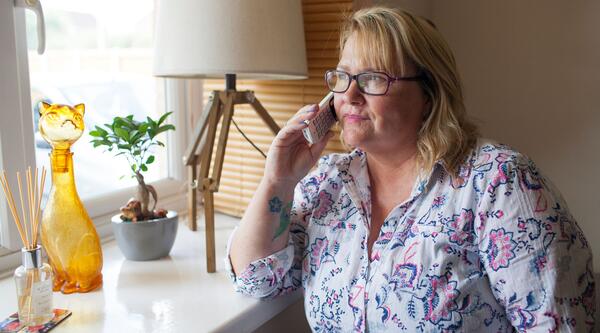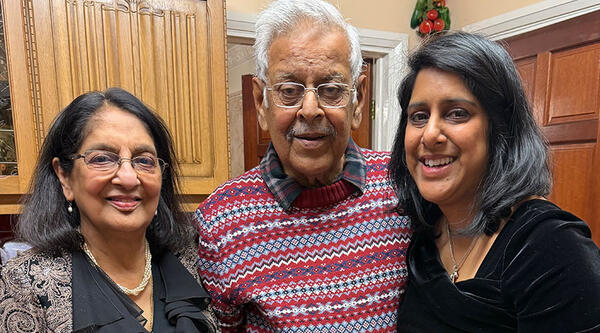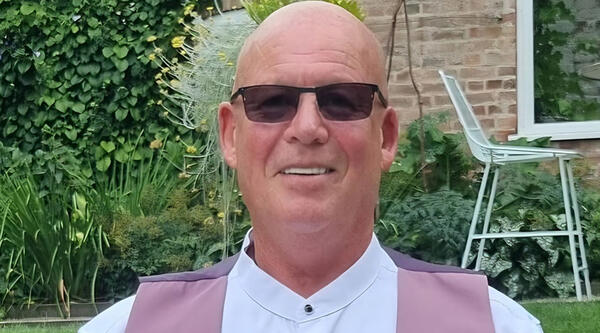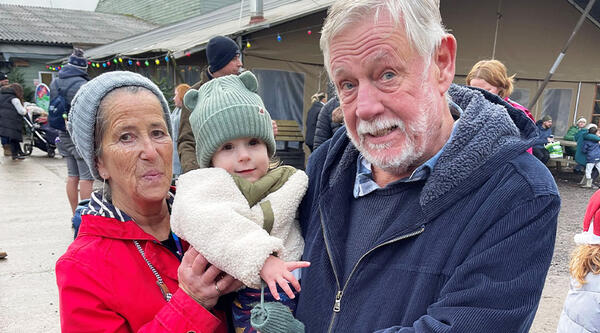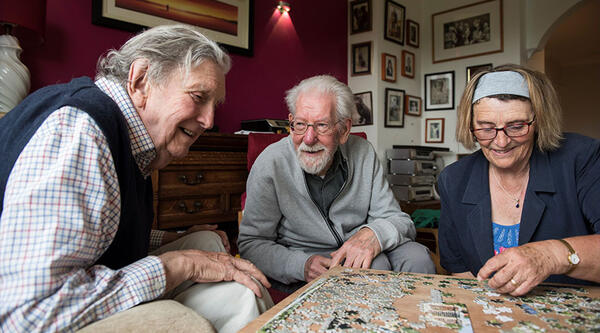Treatment and support for ARBD
Find practical guidance and advice on supporting someone with alcohol-related brain damage (ARBD). These tips and treatment options can also help people experiencing alcohol-related memory problems or Wernicke–Korsakoff syndrome.
Download or view a PDF copy of this information.
- Alcohol-related brain damage (ARBD): what is it and who gets it?
- Diagnosis: ARBD and alcohol-related ‘dementia’
- Wernicke–Korsakoff syndrome
- You are here: Treatment and support for ARBD
- Get support for ARBD - useful organisations
Supporting a person with ARBD
With the right treatment and support, ARBD will get better. Some people recover quickly within a few months, whereas others may take several years to get back to a level of complete independence.
Some people with Korsakoff’s syndrome may have permanent brain damage and never fully recover. If so, they will need specialist long-term residential care.
Supporting a person who has ARBD can be a very difficult thing to do. There may be many emotional and practical difficulties, especially if you are the person’s only support.
Medical treatment
Alcohol addiction can be hard to break, but it is even harder when a person has ARBD. They may not want to give up alcohol. If they do, they may lack the memory and thinking skills to follow it through. As a result, it can be very challenging to treat unless a person goes into hospital.
In hospital, doctors can care for a person with ARBD while they safely ‘detox’. This is likely to involve regular high-dose vitamin injections. Medicines can also prevent dangerous withdrawal symptoms and reduce cravings for alcohol.
Once the person is sober and no longer has withdrawal symptoms, the doctors can look for evidence of ARBD. They may carry out more tests, including a brain scan. If they make a diagnosis of ARBD, the hospital will normally try to find a local rehabilitation service. This provides a safe and secure place for the person to be supported while they get better. They can then be discharged into the care of this service. Sometimes there may be an available place in a specialist residential care home.
In some cases, the person may be discharged back to their own home. This could be because there are no available places in rehabilitation services, or they’re not thought to need continued care. If so, they may be at high risk of relapsing and drinking again.
Support and rehabilitation
Once a person has been through withdrawal from alcohol, it’s very important that they get continued support to not start drinking again. This could involve medications to reduce their craving for alcohol. They will also need to take high-dose vitamin tablets and eat a healthy, balanced diet.
Most local alcohol services are designed to help people reduce harmful drinking before they have ARBD. It can be hard to find services that provide more intensive support. Ideally, a person with ARBD needs specialist care and rehabilitation. This will help them regain the skills they need to live independently and recover from their addiction.
Rehabilitation services may be provided by:
- a local dementia service,
- a community mental health team or
- a clinical unit for people with a brain injury (for example, following an accident or stroke).
The availability of these local services can vary greatly across the country.
Staying alcohol-free can be especially challenging for the person if they are homeless or isolated from their family. They may have poor physical or mental health. Dealing with all these issues is important for helping the person to stay alcohol-free and recover as fully as possible.
Tips for supporting a person with alcohol-related brain damage
Supporting a person to stop drinking alcohol will give them the best chance of recovery. If they have been dependent on alcohol for a long time, they will need medical support.
Encourage and support the person to attend a self-help group for addiction. Carers, friends and family can also join one.
In addition, the following suggestions may be useful to help the person readjust to living without alcohol:
- Look for ways to do things that will help the person to keep and improve their skills. For example, if they are struggling with shopping, aim to do it with them, not for them.
- A regular routine can help to give structure to daily activities.
- Encourage the person to eat a balanced diet. It’s important that they eat healthy meals every day to get enough vitamins to help their brain to function. A good start might be to help them with food shopping.
- If the person is struggling with tasks, start simple and work up. Break down activities such as cooking a meal into smaller steps that make them easier to manage.
- When talking, be patient and use short sentences. Summarise what you have said to help them remember. Give them time to respond, and encourage them when they are speaking. For more information, see our guide to communicating with a person with dementia.
- Put labels on cupboards and arrange rooms so that essential and everyday items are easy to find.
- People with ARBD can have problems getting a good night’s sleep. Putting a healthy night-time routine into place may help.
- Ask professionals who are involved in the person’s care for more ideas on how you can best help them.
Caring for a person with dementia, a practical guide
If you are caring for a person with ARBD or dementia, this guide is for you. It will support you to care for the person and to look after yourself.



